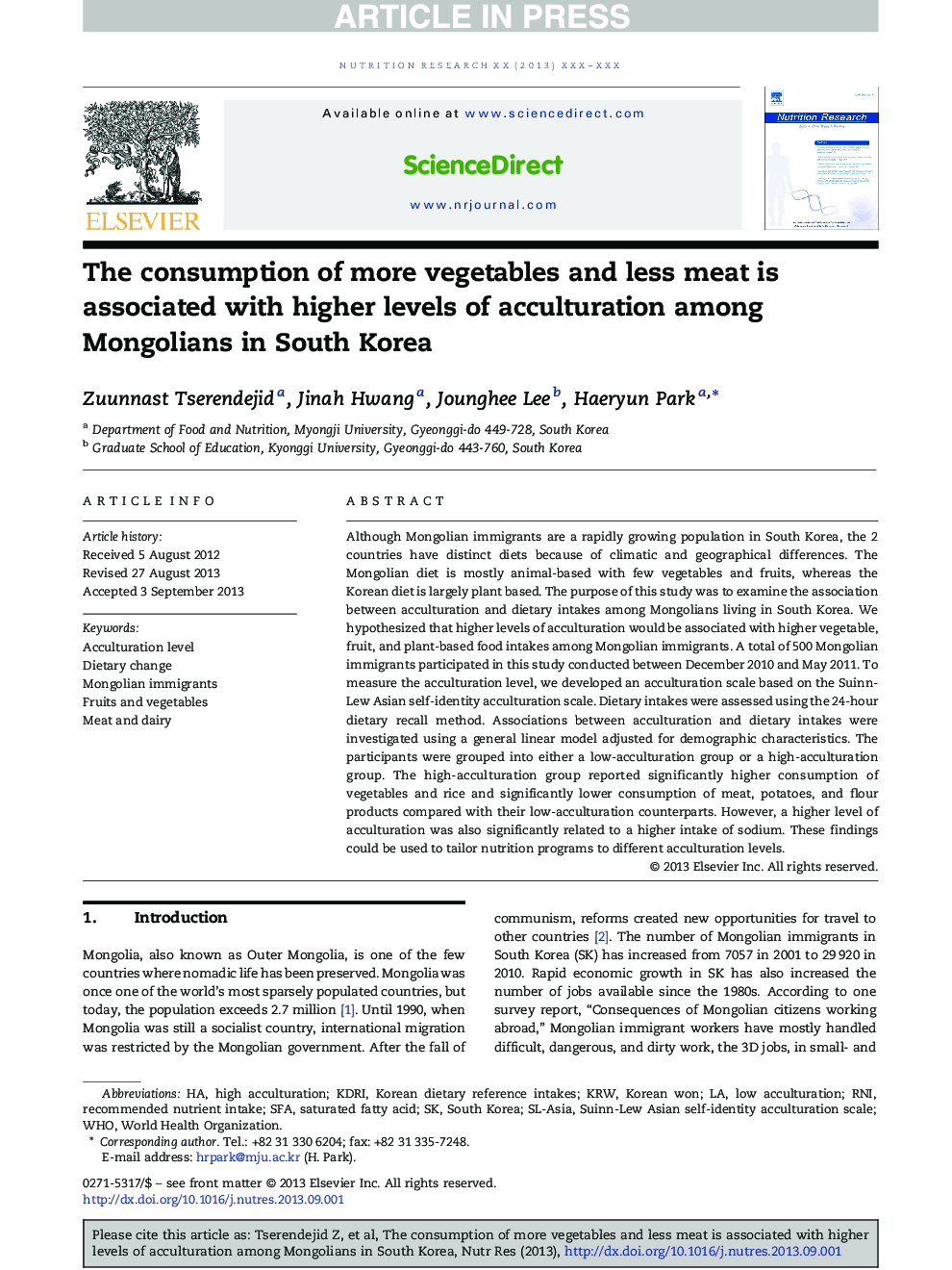| Article ID | Journal | Published Year | Pages | File Type |
|---|---|---|---|---|
| 5904484 | Nutrition Research | 2013 | 7 Pages |
Abstract
Although Mongolian immigrants are a rapidly growing population in South Korea, the 2 countries have distinct diets because of climatic and geographical differences. The Mongolian diet is mostly animal-based with few vegetables and fruits, whereas the Korean diet is largely plant based. The purpose of this study was to examine the association between acculturation and dietary intakes among Mongolians living in South Korea. We hypothesized that higher levels of acculturation would be associated with higher vegetable, fruit, and plant-based food intakes among Mongolian immigrants. A total of 500 Mongolian immigrants participated in this study conducted between December 2010 and May 2011. To measure the acculturation level, we developed an acculturation scale based on the Suinn-Lew Asian self-identity acculturation scale. Dietary intakes were assessed using the 24-hour dietary recall method. Associations between acculturation and dietary intakes were investigated using a general linear model adjusted for demographic characteristics. The participants were grouped into either a low-acculturation group or a high-acculturation group. The high-acculturation group reported significantly higher consumption of vegetables and rice and significantly lower consumption of meat, potatoes, and flour products compared with their low-acculturation counterparts. However, a higher level of acculturation was also significantly related to a higher intake of sodium. These findings could be used to tailor nutrition programs to different acculturation levels.
Keywords
Related Topics
Life Sciences
Biochemistry, Genetics and Molecular Biology
Endocrinology
Authors
Zuunnast Tserendejid, Jinah Hwang, Jounghee Lee, Haeryun Park,
